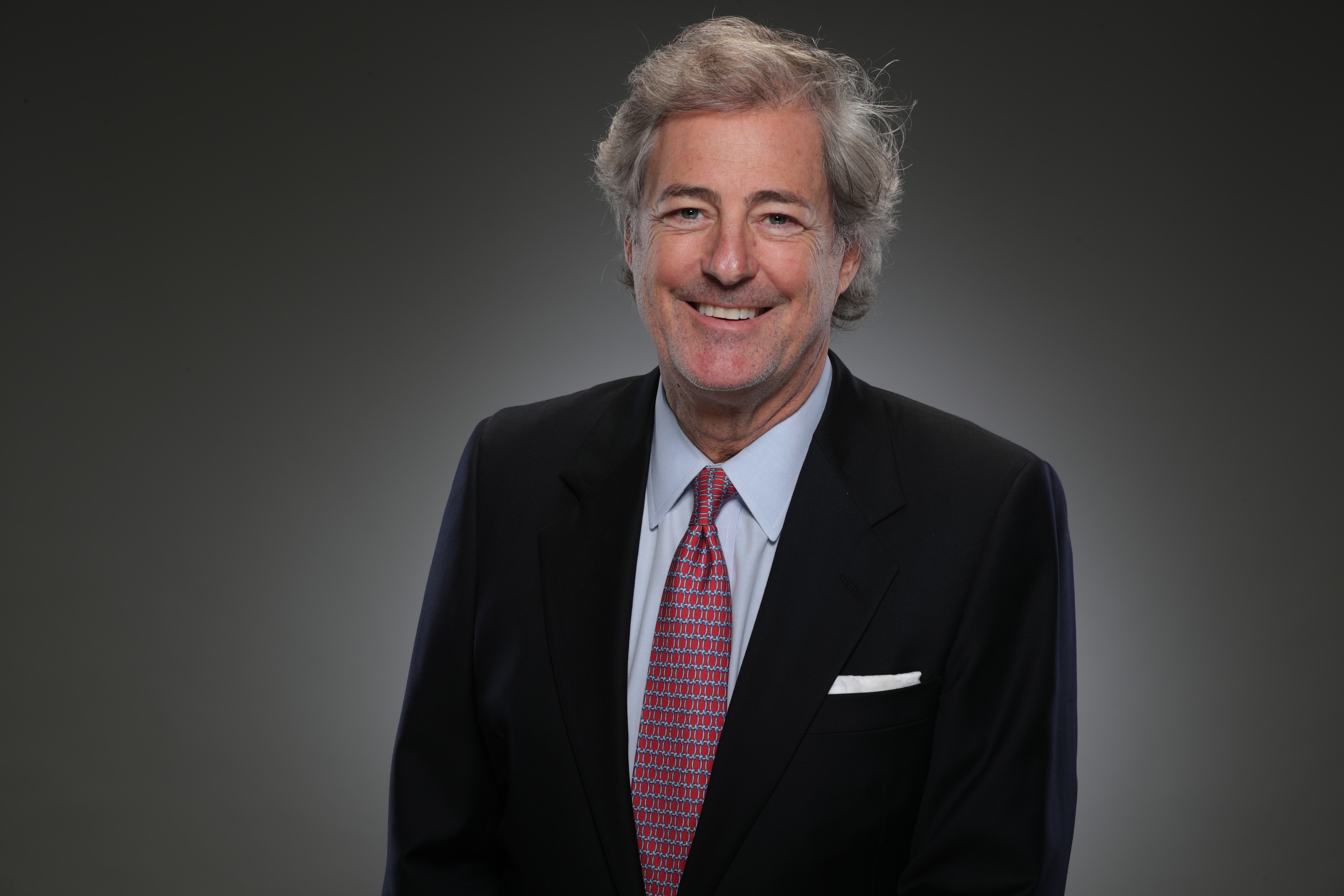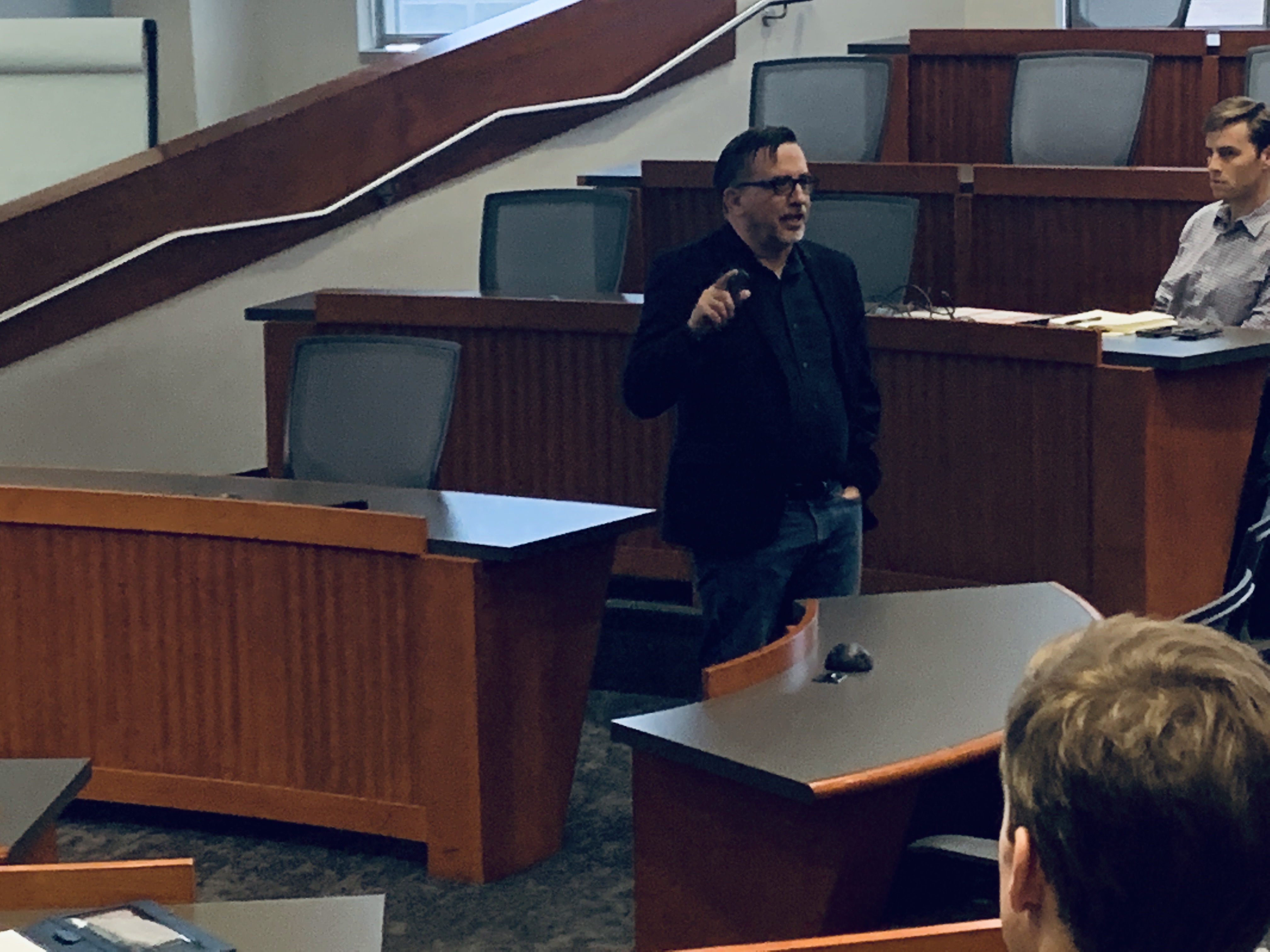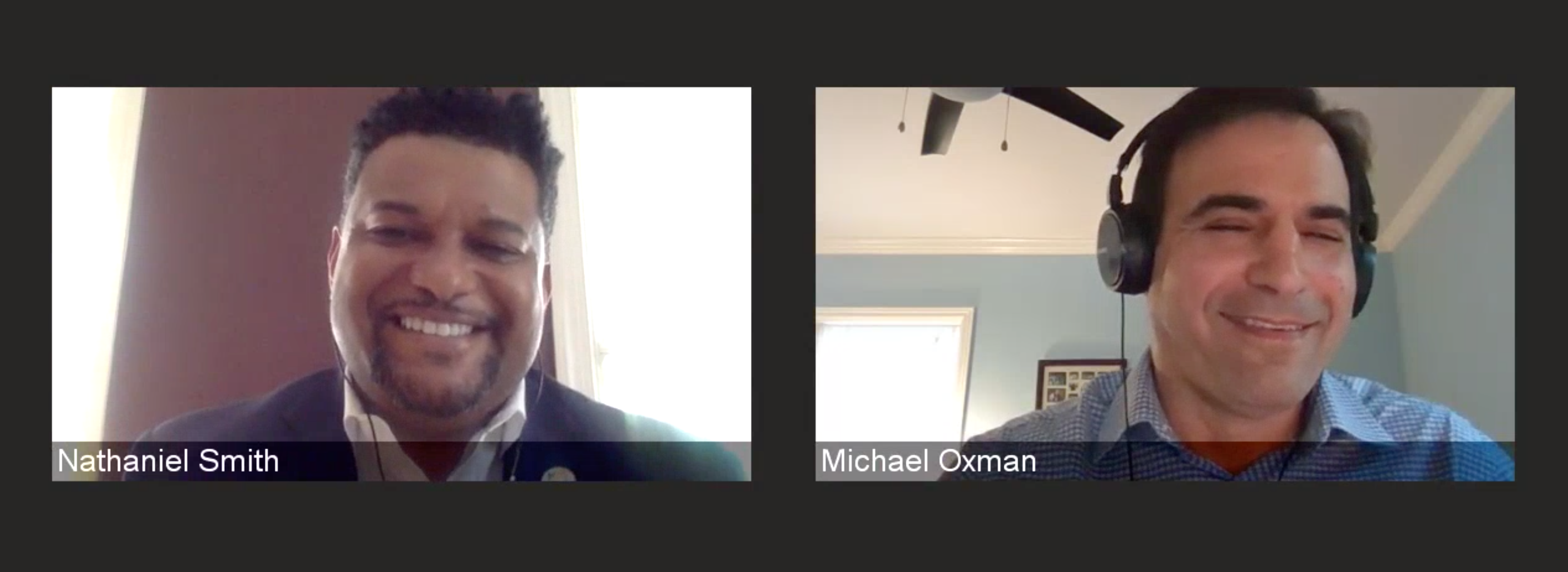Corporate and Nonprofit Leaders Discuss Equity, Impact Investing, and Sustainable Logistics
The Ray C. Anderson Center for Sustainable Business (“Center”) launched the Business, Environment, and Society Speaker Series in 2016 to develop and strengthen the network of sustainability-minded students, faculty, staff, practitioners, and community members. Hosting the series is just one way in which the Center serves as a connector and catalyst across diverse stakeholders in an effort to create more sustainable communities. Through informative talks, lively Q&As, and illuminating interviews, the series opens the lines of communication between current and future changemakers.
Several times each semester, speakers present on topics connected to research in and practice of sustainable business. The Center has hosted a total of 19 faculty, authors, nonprofit leaders, and corporate practitioners from EY, IHG, the Partnership for Southern Equity, PG&E, Rubicon Global, The Coca-Cola Company, and more. Visiting presenters generously share their time and deep sustainability expertise across a diverse range of sectors.
The Center plans to focus upcoming talks on social performance and human rights issues, such as racial inequality, which are currently garnering national and international attention. In addition, the series will feature Scheller College of Business faculty who will share their research. The next talk, a live webinar on June 24, will feature Laurina Zhang, assistant professor of strategy and innovation, presenting on the topic, “How Do Social Liberalization Policies Impact Innovation?” Visit the Center’s events page for more information and to register.
Please read on to hear what attendees had to say about the three speakers from Spring 2020.

Mark Callaway
On January 27, Mark Callaway (Senior Vice President and Investing with Impact Director, Morgan Stanley) described trends in impact investing and shared Morgan Stanley’s commitment to serving conscientious investors through portfolios that embrace ESG themes.
“The most interesting tidbit from the talk was about conscientious investors moving from using only ‘stick motivation’ to ‘carrot and stick motivation’—simultaneously. Investors now don’t just withhold capital from companies that have had ESG missteps. Investors now reward companies that do well in the ESG space. You now see companies with high ESG scores outperforming the industry baseline; I think this may be happening because they have access to capital based on their responsible decision-making.”
— Casey Erb
Casey Erb graduated with a B.S. in Environmental Engineering in Spring 2020. He also earned an engineering and business minor with the Steven A. Denning Technology & Management Program.
“This is the first time I’ve heard someone in the financial industry talk about impact investing in a positive way. Even though most would agree that companies should be sustainable, the financial world is pretty ‘old school.’ It’s great to hear that things are changing. BlackRock CEO Larry Fink recently said his firm will no longer invest in a company if 20% or more of its revenue comes from fossil fuels. Statements like this can be really influential. I’m curious to see what the financial performance of B Corps and companies with high ESG scores will look like in the future, and how they’ll compare to the general industry. That trend line is just starting. In ten years, it’s going to be interesting to see the impact of the conversations we’re having today.”
— Shrinka Roy
Shrinka Roy, who is enrolled in Georgia Tech’s Dual Degree Program, is a first-year student in the Full-time MBA program and a second-year Master of Industrial Design student.
“Since companies mostly self-report ESG performance, it’s hard to know which numbers to trust. It’s great that investment firms such as Morgan Stanley are following up on those reports. However, that work comes with high costs. When managing portfolios, those expenses need to be taken into account until we get more accurate and consistent ESG reporting across the board.”
— Henry McGill
Henry McGill (MBA 2020) served as vice president of placement for the Scheller College Net Impact – MBA Chapter. He received the 2020 Dean’s Award for Full-time MBA Student Excellence.

Jack Allen
Jack Allen (Senior Director, Global Logistics, Cisco) gave a presentation on March 9 that focused on sustainability within Cisco’s Supply Chain Operations organization. Allen directs logistics activities that support all of Cisco’s product revenue and returns.
“‘Sustainability’ is such a buzzword these days. It can make one skeptical of whether a company’s so-called ‘sustainability performance’ is really helping to build a better world—or just satisfying its marketing team. Jack Allen’s talk convinced me that Cisco is working hard to reduce its negative impact on the environment. Jack did a great job explaining how Cisco is retooling its supply chain and innovating to design products for a circular economy. His talk also helped students like me appreciate the massive effort that goes into building a take-back program that consumers find easy to use.”
— Phuong Nguyen
Phuong Nguyen is a student in the Evening MBA Program. She is a product marketing professional with deep interests in the finance, payments, and fintech industries. She recently accepted the 2020-21 co-chair position for the GEMs Marketing Club.

Nathaniel Smith is interviewed by Center Managing Director Michael Oxman during a live online presentation.
The April 9 presentation featured Nathaniel Smith, founder and chief equity officer of the Partnership for Southern Equity, which advances policies and institutional actions that promote racial equity and shared prosperity for all in the growth of metropolitan Atlanta and the American South.
“A takeaway that resonated with me was the transition from extractive to regenerative economies, and how this results in empowered participation. Application of regenerative economy principles can be scaled appropriately. Nathaniel Smith’s talk gave me a perspective to consider when my Engineers Without Borders team designs and builds infrastructure with other communities.”
— Madison Novak
Madison Novak is a mechanical engineering major who will be graduating in Fall 2020. She has demonstrated interest in the renewable energy sector and has been working with the Engineers Without Borders Chapter at Georgia Tech since Fall 2017.
“I appreciate the ‘seven generations of impact’ framework Nathaniel shared, which gives us a quantifiable scope for our sustainability endeavors. The way I see it, this model not only reaches out to those who will come after us but also engages various generations coexisting on this planet at any given moment. I look forward to intergenerational collaboration becoming accessible, effective, and the norm. We might even be able to incorporate some of the lessons learned from our digital transition during the Covid-19 pandemic.”
— Unwanna Etuk
Unwanna Etuk graduated from Georgia Tech in Fall 2019 with a B.S. in International Affairs and two Serve-Learn-Sustain-affiliated minors in Global Development and Spanish. She was the lead author of the City of Woodstock’s sustainability plan.
Written by Jennifer Holley Lux
